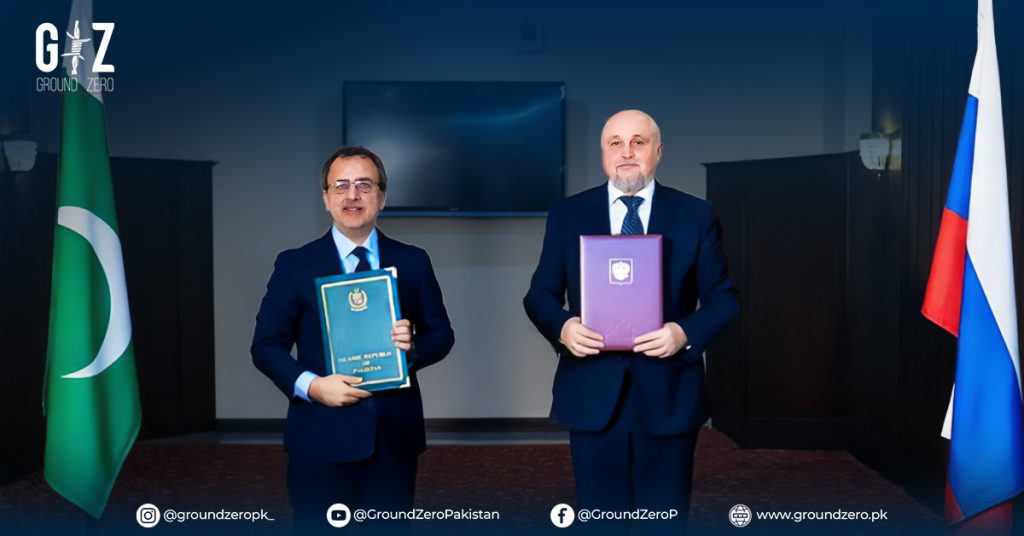A New Chapter in Pakistan-Russia Relations
On December 4, 2024, Pakistan and Russia signed eight groundbreaking Memorandums of Understanding (MoUs) to strengthen cooperation across various sectors. These agreements represent an ambitious step toward mutual growth, targeting health, education, trade, IT, agriculture, and more. With these MoUs, both nations aim to enhance bilateral ties, create economic opportunities, and address shared challenges. You can explore how these MoUs shape Pakistan’s future in our Opinions section.
Breaking Down the MoUs
1. Health Sector: Insulin Production in Pakistan
An MoU focusing on insulin production aims to address Pakistan’s growing diabetes crisis. By fostering local production, this agreement will reduce dependency on imports and make life-saving treatments more accessible and affordable. To better understand the implications of this collaboration, visit our detailed coverage in Balochistan News.
Learn more about diabetes management strategies on the World Health Organization website.
2. Education: Promoting Academic Exchange
Pakistani universities like COMSATS and Peshawar University will partner with Russian institutions to promote academic collaboration. These exchanges will allow students and researchers to work on joint projects, share knowledge, and tackle global challenges. For insights into similar initiatives, explore our Pakistan News category.
Discover how global education systems are advancing collaboration on UNESCO’s website.
3. Industrial Cooperation: Boosting Local Growth
Industrial collaboration is another highlight, with plans for technology transfer and joint ventures. These efforts will enhance Pakistan’s manufacturing sector, creating jobs and fostering innovation. To dive deeper into industrial progress, check out our updates in Middle East News.
Explore Russia’s advancements in industrial technology on Russia Beyond.
4. Trade: Expanding Bilateral Commerce
The trade agreement focuses on boosting exports and imports of agricultural products like rice, mandarins, lentils, and chickpeas. This step will diversify Pakistan’s trade portfolio while giving Russian consumers access to high-quality Pakistani goods. Read about these trade developments in the Afghanistan News section.
Get the latest trade statistics on Pakistan from Trading Economics.
5. IT: Enhancing Urban Security and Connectivity
The IT agreement includes establishing IT centers in Pakistan and collaborating on Safe City projects. These projects will improve urban security and strengthen Pakistan’s digital infrastructure. Learn how IT partnerships are transforming urban landscapes in our Khyber Pakhtunkhwa News section.
For insights into global smart city projects, visit the World Bank.
6. Agriculture: Joint Ventures for Food Security
Agricultural development will see both nations collaborating on productivity-boosting ventures. Pakistan’s fruits and vegetables will find a new market in Russia, supporting farmers and strengthening the agricultural economy. Explore the agricultural dynamics in the Iran News section.
For global agricultural trends, check out the Food and Agriculture Organization.
7. Science and Technology: Advancing Innovation
This MoU paves the way for collaborative research in science and technology. By pooling resources and expertise, Pakistan and Russia can drive innovation in fields like energy, medicine, and environmental science. You can find more on innovation-driven partnerships in our Opinions section.
Discover recent scientific advancements at Nature.
8. Parliamentary Cooperation: Strengthening Political Ties
An agreement for parliamentary diplomacy will foster political dialogue and cooperation between legislative bodies. This will enhance mutual understanding and support policy alignment for future projects. To learn about the broader political implications of this partnership, visit our Ground Zero homepage.
Explore the role of parliamentary diplomacy at the Inter-Parliamentary Union.
Why These Agreements Matter
The signing of these MoUs reflects a strategic shift in Pakistan’s foreign policy. By partnering with Russia, Pakistan is diversifying its international relations and creating opportunities for growth in critical sectors. To understand the broader geopolitical impact, explore our Middle East News section.
Challenges Ahead
While the MoUs show immense potential, their success depends on transparent implementation and sustained efforts from both sides. Political will, resource allocation, and public-private partnerships will be crucial to turning these agreements into tangible outcomes.
Looking Forward
Pakistan and Russia’s collaboration is a significant milestone in their diplomatic history. These MoUs not only deepen their relationship but also set the stage for future initiatives in energy, defense, and beyond. To stay updated on this evolving story, visit our Pakistan News section.


